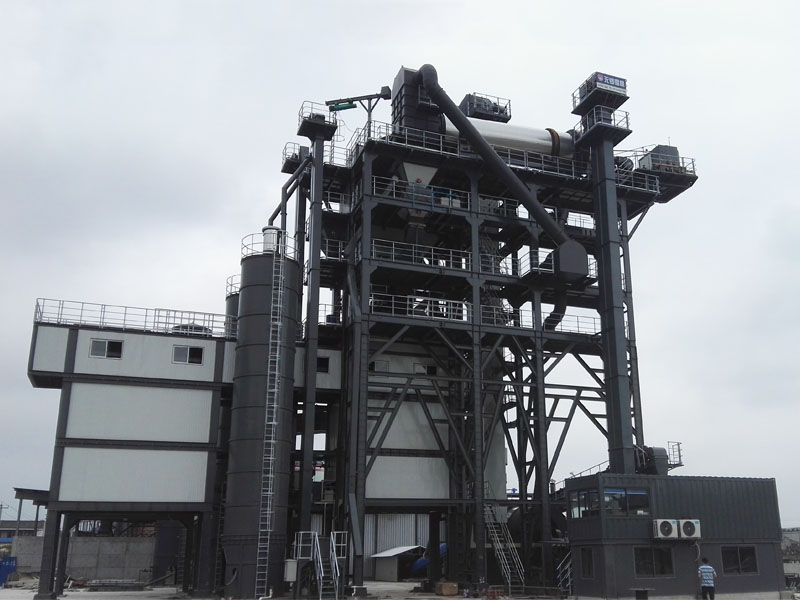Why Should We Choose an Asphalt Recycled Mixing Plant for Sustainable Road Construction?
2025-09-19
The continuous development of modern road construction pushes us to think about sustainability, cost efficiency, and environmental protection. Asphalt Recycled Mixing Plant is a solution that combines advanced technology with environmental responsibility, helping both contractors and governments reduce waste and reuse valuable asphalt materials. When I first heard about this equipment, my question was: Can it really maintain road quality while reducing costs? The answer is yes. This technology ensures that recycled asphalt mixtures meet strict standards, while significantly lowering production expenses.
What Is an Asphalt Recycled Mixing Plant?
An Asphalt Recycled Mixing Plant is specialized equipment that integrates reclaimed asphalt pavement (RAP) into new mixtures. Instead of discarding old asphalt, the plant processes it and mixes it with fresh binder and aggregates to create high-quality asphalt for paving.
Main features include:
-
High recycling ratio capability (up to 50–70% RAP).
-
Intelligent temperature control for consistent product quality.
-
Energy-saving burners and dust collection systems.
-
Environmentally friendly operation reducing CO₂ emissions.
Basic Parameters Example
| Parameter | Specification Example |
|---|---|
| Recycling Capacity (RAP) | 30%–70% |
| Output Capacity | 80–320 t/h |
| Fuel Consumption Reduction | 15%–25% |
| Dust Emission | ≤ 50 mg/m³ |
What Is the Role of Asphalt Recycled Mixing Plant?
The role of this plant is to extend the lifecycle of asphalt materials and reduce raw material consumption. It allows road construction projects to reuse old pavements, ensuring sustainability while lowering dependency on natural aggregates and petroleum-based binders.
When I first used this equipment in practice, I asked myself: Will the recycled material reduce the durability of roads? The answer is no. In fact, the plant ensures that the final asphalt mixture achieves equal or even higher stability compared to conventional mixtures.
Key Roles:
-
Conserves natural resources.
-
Enhances environmental protection.
-
Provides cost-effective road construction.
-
Ensures consistent pavement quality.
How Effective Is the Asphalt Recycled Mixing Plant in Real Projects?
In actual applications, the effectiveness of Asphalt Recycled Mixing Plant is evident through improved project economics and environmental performance. Contractors report significant cost savings, while communities benefit from reduced waste and greener infrastructure.
For example, projects using 50% RAP achieve:
-
Cost reduction of up to 20%.
-
Energy savings by cutting fuel consumption.
-
Emission reduction due to efficient dust collection.
When I observed the results firsthand, I wondered: Is this technology truly suitable for large-scale highway construction? The answer is yes. Many countries already deploy it in national highways, municipal projects, and airport pavements.
Why Is Asphalt Recycled Mixing Plant So Important?
The importance of Asphalt Recycled Mixing Plant goes beyond simple cost savings. It plays a crucial role in shaping the future of sustainable infrastructure. Governments and enterprises increasingly emphasize circular economy principles, and asphalt recycling fits perfectly into this vision.
Importance Highlights:
-
Meets environmental regulations and carbon reduction targets.
-
Supports circular economy by reusing waste asphalt.
-
Reduces landfill pressure by minimizing asphalt disposal.
-
Builds corporate social responsibility for construction companies.
The Combined Role of Technology and Sustainability
By integrating intelligent control, high-efficiency burners, and advanced RAP feeding systems, Asphalt Recycled Mixing Plant ensures not only high productivity but also green operation. This makes it a strategic choice for contractors aiming to remain competitive in the modern infrastructure market.
Contact Us
If you are considering sustainable and efficient asphalt mixing solutions, WUXI XUETAO GROUP CO., LTD provides advanced Asphalt Recycled Mixing Plant with strong technical support and customization options. Our solutions are already applied in multiple global infrastructure projects.
